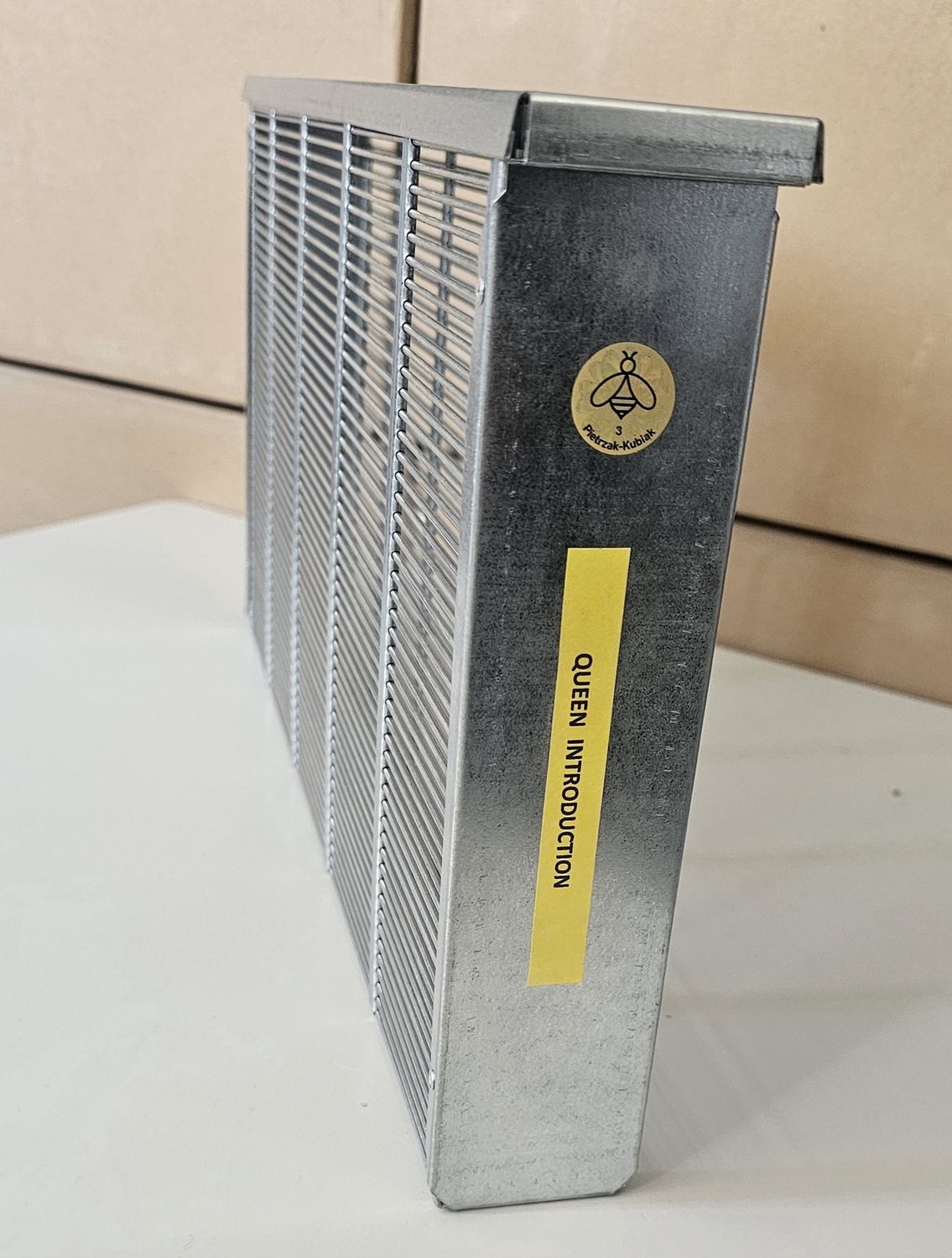Queen Introduction Cage
Narrow bar spacing (3.25 mm) prevents both queen and workers from entering or leaving, entirely isolating the queen on a frame. The cage top has a folded metal edge to ensure that no bees can come or go without prior beekeeper approval.
NOTE: These are NOT the same product as our Queen Isolation Cages. This Queen Introduction Cage has narrower bars, and NO bees are able to move through them. They are similar looking cages but should not be confused with one another.
To introduce a queen with the Queen Introduction Cage:
- Find a frame that contains nectar, pollen, and capped brood (including emerging brood) and brush or gently shake the bees off of it.
- Place the completely bee-free frame in the cage and put the lid on, away from the hive.
- Observe for a minute or two, to make sure no additional bees were hidden on the frame and are now crawling inside the cage. If there are any, remove them.
- Once you're sure the frame has no mature workers, carefully remove your new queen from her cage and gently insert her into the open Queen Introduction Cage, between the top bar and the side of the cage. (Inserting the queen at the top removes the risk of hurting her as you slide the frame up and down along the walls of the cage.) Then carefully replace the lid on the cage, and don't crush your queen!
- Lower the closed cage gently into the hive. The cage can be used in a 10-frame hive with 9 additional uncaged frames, but it is often much easier if you remove an extra frame to make additional space while the cage is being used.
- In a few days (3 to 5), carefully remove the frame to make sure the queen is laying eggs and being cared for by the newly emerged young bees. If the queen is healthy and no aggression is seen by the bees outside the cage, the cage can be removed and the frame can be reinserted into the hive, with the queen completely accepted by all of the workers.
Additional Instructions
Be careful to insert and remove the frame GENTLY and SLOWLY if the queen is on it, since she can be killed if she is scraped between the frame and the cage wall.
The cage occupies more space than a single frame, so two frames should be removed to make ample room for it in a deep hive body. One deep frame is inserted into the cage, and the solid cover is placed on top. The cover sits on top of the frame's top bar, and can be removed to give access to the frame without the need to remove the cage itself.

